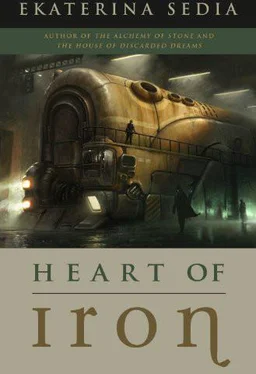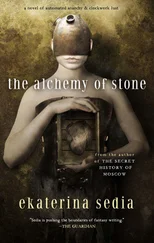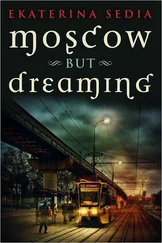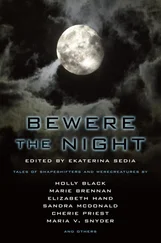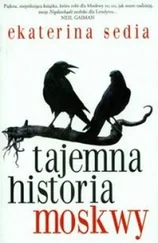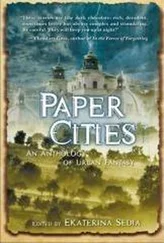Olga was not so easily thwarted. “Cruelty is not exactly uncommon, you know.”
“So Anastasia tells me.”
Anastasia chose to return at that time, and, eager for a distraction, I made her repeat the gossip she brought home from the market that morning.
Anastasia settled by the table, her elbows on its polished surface and her fists holding up her freckled and ruddy countenance. She enjoyed being a center of attention, and she started with a great sense of foreboding. “I went to the shop just the other day, to get some pickles and raspberry preserves, seeing how we didn’t make any this year — I guess they did at the Trubetskoye, but the countess didn’t send us any, even though she could have, but I’m not complaining. So I went to the shop, and there was this man — really shifty, and he wasn’t buying anything, only looking as people went and came, all crooked-like. And then there was one of these Chinamen, all in silk and with a long mustache and a straw basket on his head. He just bought a twist of tobacco and a pound of tea, but that shifty man followed him right out, and I said to Marfa the shop girl, what is he doing? And she says, oh, that’s a Nikolashka. Goodness me, what is that, I say. And you know what she says?”
Olga and I shook heads in unison.
Anastasia sighed with happiness. “Marfa tells me that ever since all the foreign people started coming to St. Petersburg, Prince Nicholas took charge of keeping an eye on them. And he now has policemen — only they’re not in uniform and they are all secret-like — and people call them Nikolashki, after the prince. And they follow the Chinamen around, for our protection.” She nodded to herself, satisfied, and fell silent.
“That is so strange,” Olga said. “Are the Chinese really up to something?”
I shrugged. “The ones I talked to certainly aren’t.”
Olga smiled at that. “That’s right,” she said. “There is that young man you talk to, and his friends. They always sit behind you.”
“Behind us,” I said. “And if you want to meet them, come with me this Saturday — they are having a social at their club.”
“Club?” Olga asked, apprehensive.
“Just off Fontanka, “I said. “A few blocks from Anichkov Bridge. The Chinese students always go there — I think they feel unwelcome everywhere else.”
“This could be fun,” Olga decided. “It’s not dangerous, is it?”
I shook my head. “Of course not. We’ll take Anastasia with us for propriety’s sake, and they are harmless, really. Besides, I’m sure Prince Nicholas and his secret protectors will be chivalrous enough to come to our rescue if the necessity arises.”
Olga smiled a bit and shook her head. “I know you’re just joking, Sasha. But doesn’t it worry you, even a little?”
I shrugged. “Let the government worry about such notions. I’m much more concerned about my human biology exam.”
“Me too.” Olga rose to her feet. “I suppose I better go study.”
She departed to her apartment located just down the hall from mine, leaving me with my uneasy thoughts. I looked through my notes and thumbed a thick volume written by Ipatiev himself, where he illustrated some especially savage and sloping foreheads as indicators of intellectual inadequacy. He had a chapter on Chinamen as well, and I tried reading it before flinging the book across the room — the faces illustrated there, all toothy and barely human, bore no resemblance to the gentle features of Chiang Tse and his countrymen, who were all polite and soft-spoken, and who were kind to me. Yet, I suspected that the majority of my classmates would rather believe the book than their own eyes. This is why, I decided, I could not possibly fail this exam — as unfair as it was, all five women were closely scrutinized, and any shortcoming on our part would reflect on future generations. A sense of historical responsibility weighed on me until I had a cry and went to bed early.
Saturday was upon us before I was ready for it — drowning in readings and incomprehensible problems, I was entirely too preoccupied. It was a blessing, since it allowed me to barely notice the habitual mockery of my classmates. That in turn seemed to enrage them further, and I rarely had a chance to walk to class without hearing a snide remark. The day before our scheduled visit to the Crane Club, as I was leaving the auditorium, I heard a man’s voice say, “Look at her. Takes after her aunt Menshova.” This was not a surprising statement — my aunt was well known and almost universally disliked. I turned around to see a clump of several younger men, some of whom I recognized from last season. There was no indication as to which one of them spoke, and all smiled, almost predatorily.
I gave them a long measured look and continued on my way.
The same voice spoke again. “I hear this one is going to be an old maid too.”
I did not dignify it with a reaction, until someone else added, “I hear she’ll marry a Chinaman.”
I spun around, feeling my face burn. “Instead of marrying a brainless cowardly lout like any of you? Why, it’s a capital idea!”
A few laughed, the rest appeared outraged. I continued on my way. By then, we had left the building and early dusk was descending over the campus. It occurred to me then that I was alone and rather helpless. Six or seven of the men followed behind me, never closing the distance between us. I almost regretted my insolence when Dasha Muravieva and Larisa Kulich caught up to me, and the pursuers dispersed.
“What happened?” Dasha asked me.
I caught my breath and let my heart calm down before I answered. “I don’t know, but I think it would be a good idea for us to walk in pairs, and never alone.”
Dasha and Larisa nodded and grew serious. I thought bitterly that I did not need to explain to them what I meant when I said “us.” They knew we were separate from everyone on campus, and that even our families could not protect us from the subtle menace of our fellow students.
So I was relieved when Saturday had arrived, and looked forward to visiting the very mysterious Crane Club. I had only heard rumors of the place, and wondered if there would be any opium smoking, or any of the other indulgences ascribed to the foreigners. Chiang Tse did not seem capable of anything unwholesome — and neither did his friends. I had heard, however, rumors of strange devices housed in the Chinamen’s club.
The rumors turned out to be true. The outside of the building was an unassuming storefront, painted pale green. Inside, Olga, Anastasia, and I encountered a foyer filled with lacquered display cases, where a number of interesting contraptions sat on the shelves protected by thick glass.
Chiang Tse met us in the foyer, and smiled at my obvious befuddlement. “These are the projects of the Chinese engineering students who went to this university,” he said. He pointed out a cigar-shaped object with a basket under it. “This is a model of an airship used in the Opium War,” he said. “And next to it is a device that transcribes sounds.”
We politely examined a brass contraption that consisted of a huge funnel-shaped horn on top and a large gutta-percha membrane on the bottom, connected by wires to a series of slender quills. When Chiang Tse spoke, the quills twitched nervously, but remained stationary.
“There are quite a few interesting things,” Chiang Tse said. “But for now, let’s go and meet the rest of my friends.”
Inside the club proper we found it was fashioned after a large parlor. There were chairs and cushioned sofas, as well as a large central area covered in rugs woven in simple green patterns and surrounded by wide, low couches. All of the furniture was upholstered in sea-green and golden silk, and the paintings on the walls depicted bug-eyed black fish and peculiar, long-bodied dragons that reminded me of eels more than the stocky lizards one saw on St. George icons. There were also long scrolls hanging between the paintings, with plum flowers and mountainous landscapes drawn in spare brushstrokes of black and red ink. I had to stop and stare. I marveled at the economy of these drawings and how they still managed to evoke such expansive beauty.
Читать дальше
